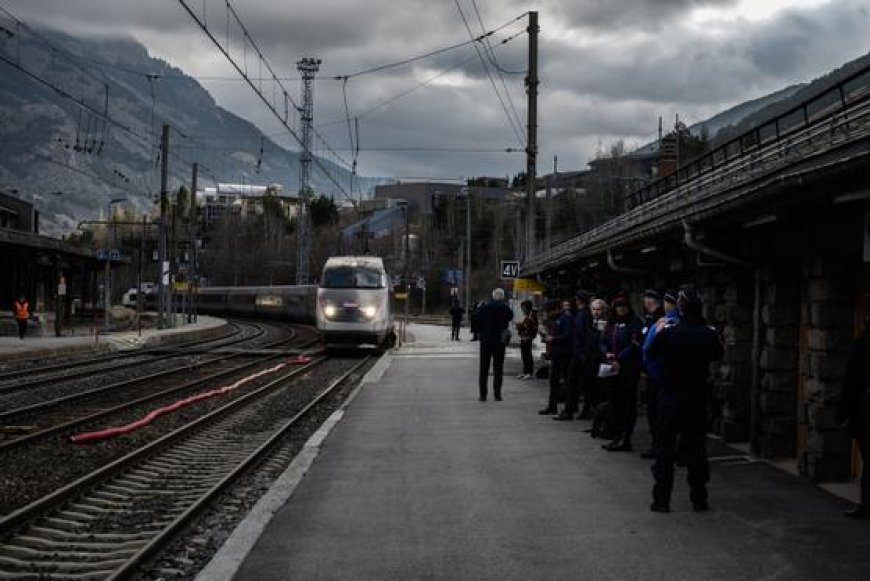France Derails: Strikes Cripple the Republic’s Backbone
At the heart of the unrest lies a series of government-proposed reforms that workers view as attacks on their livelihoods and dignity. Though aimed at modernizing the railway system and addressing budget deficits, the reforms have sparked outrage—particularly over extended work hours and increasingly irregular shift patterns, which have contributed to extreme physical fatigue and mental strain. Job insecurity has become a major concern, fueled by threats of outsourcing and EU-mandated liberalization, casting a shadow over the future of France’s labor market.

Since early May 2025, France's railway network has been paralyzed by a wave of nationwide strikes launched by employees of SNCF (France’s national railway company), protesting against government reforms and poor working conditions. Train drivers, technicians, and station staff have brought parts of the public transport system to a halt, deepening the country’s ongoing social crisis. Rooted in demands for higher wages, shorter working hours, and stronger job security, the strikes have triggered severe psychological stress among workers and widespread public dissatisfaction with the government and SNCF management. Backed by major labor unions and sustained by the strong involvement of worker organizations, the strikes have exacerbated France’s infrastructural and economic challenges.
At the heart of the unrest lies a series of government-proposed reforms that workers view as attacks on their livelihoods and dignity. Though aimed at modernizing the railway system and addressing budget deficits, the reforms have sparked outrage—particularly over extended work hours and increasingly irregular shift patterns, which have contributed to extreme physical fatigue and mental strain. Job insecurity has become a major concern, fueled by threats of outsourcing and EU-mandated liberalization, casting a shadow over the future of France’s labor market.
The culmination of this discontent exploded into full-scale strikes that have disrupted daily life across the country. Mass walkouts by train drivers, technicians, and station staff have resulted in widespread cancellations and severely reduced services. In major urban areas like Île-de-France, RER lines have been particularly affected, forcing millions of commuters to seek more expensive alternative transportation. The ripple effects have spread to freight services and supply chains, further harming the economy.
Meanwhile, the psychological toll on transportation workers remains a critical but underreported issue. Studies show a strong correlation between high psychological demands, low schedule control, and irregular hours with rising levels of depression and anxiety among railway staff. Incidents such as emergency stops and passenger-related accidents have lowered job satisfaction, leading to widespread burnout. The lack of sufficient social support and healthcare access has intensified workers’ sense of isolation and vulnerability.
The French government, struggling to contain the situation, has expressed grave concern over the long-term social implications and its own inability to reach a quick resolution. Patrice Vérigrète, Minister of Transport, emphasized the financial damage caused by each day of strike action, estimating €10 million in losses to planned railway investments. These losses jeopardize critical modernization projects and climate-friendly transport goals. Officials admit that repeated failures to strike a deal with unions risk plunging the country into a prolonged deadlock, threatening broader 2025 economic plans, including key fiscal and environmental targets. The crisis lays bare the government’s difficulty in balancing urgent reforms with the need to preserve social harmony and maintain essential public services.
The strike has received extensive media coverage across France. National newspapers and broadcasters have aired detailed reports on the protests, worker testimonies, and ongoing union negotiations. This media attention has brought striking workers’ voices and grievances to the forefront of public discourse. Trade unions have played a crucial role in organizing and sustaining the strikes, demonstrating their powerful mobilizing capacity. While not all unions have directly joined the strikes, public endorsement of calls for “fair dialogue” by groups like CFDT and UNSA marks a notable moment of labor unity, reinforcing the workers' negotiating position.
Prolonged conflict has also eroded public trust in SNCF’s leadership and the government’s crisis management abilities. Disruptions to daily life, along with the financial burden on commuters, have bred public frustration and raised questions about the state’s ability to guarantee vital services. The delay in resolving the crisis has weakened institutional credibility and threatens to undermine social cohesion. Small businesses and the tourism sector have suffered from cancellations and lost revenue, adding another layer to the wider economic fallout.
In conclusion, the recent French railway strikes reflect a collision of economic, psychological, and political grievances that have grown into a major social crisis. Ongoing union protests have exposed deep flaws in public-sector reform strategies and signal a growing trend of labor disengagement and instability. Infrastructure problems caused by the strikes, coupled with declining public trust and the government’s struggle to respond, have placed France at a crossroads. The ongoing unrest risks widening class divisions, igniting further social unrest, and destabilizing the very social fabric that underpins the country’s critical transport arteries and broader stability.
*Translated by Ashraf Hemmati from the original Persian article written by Amin Mahdavi












































